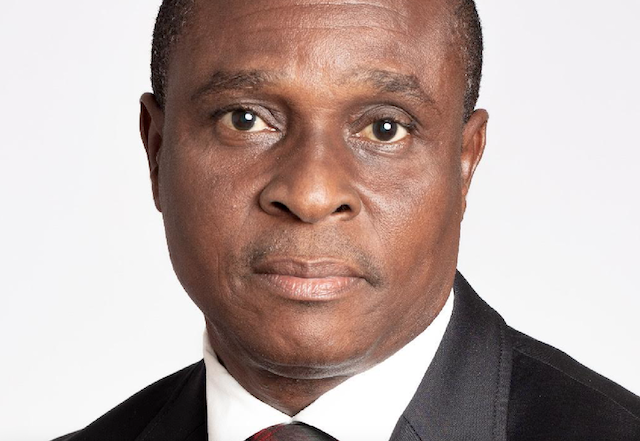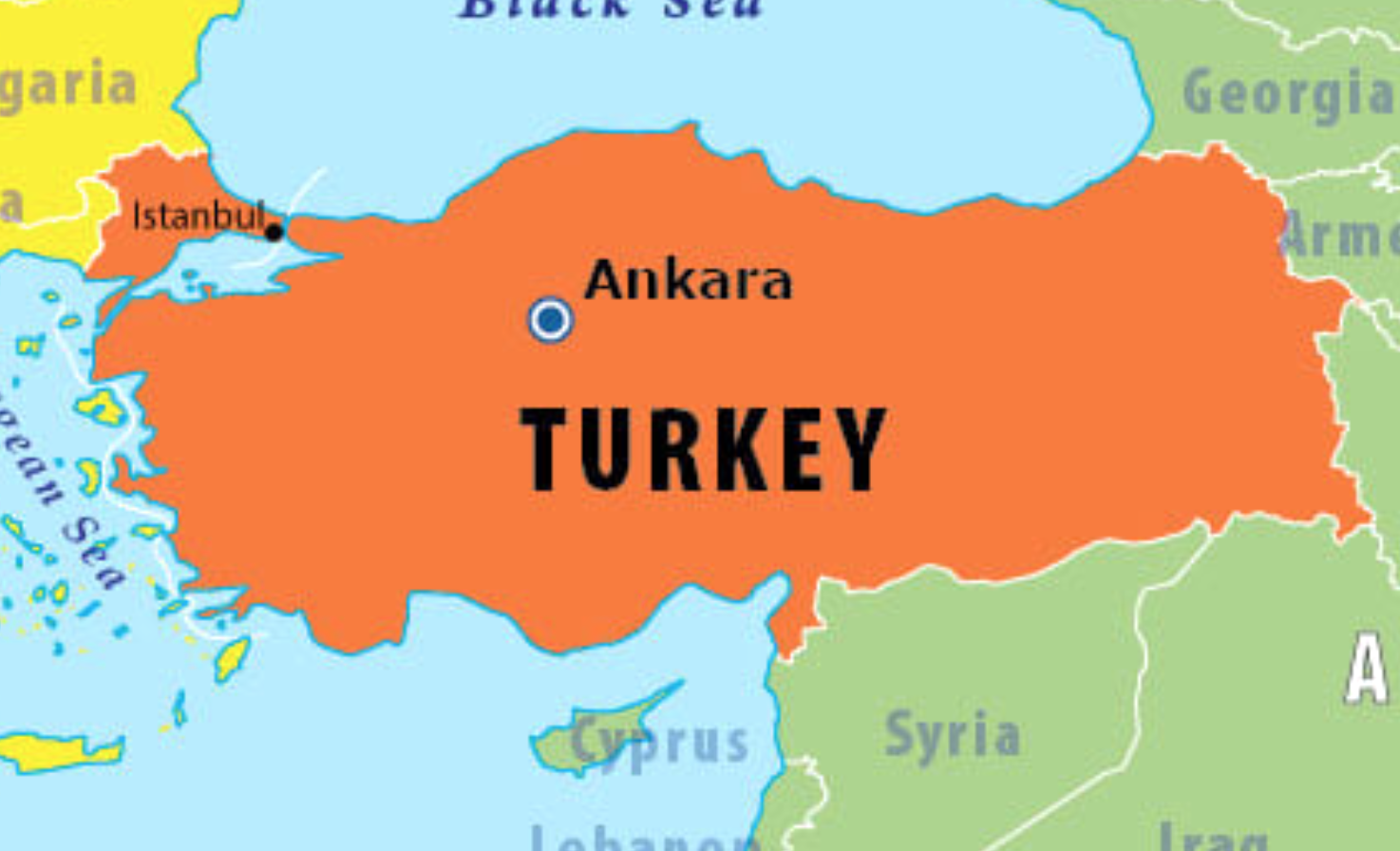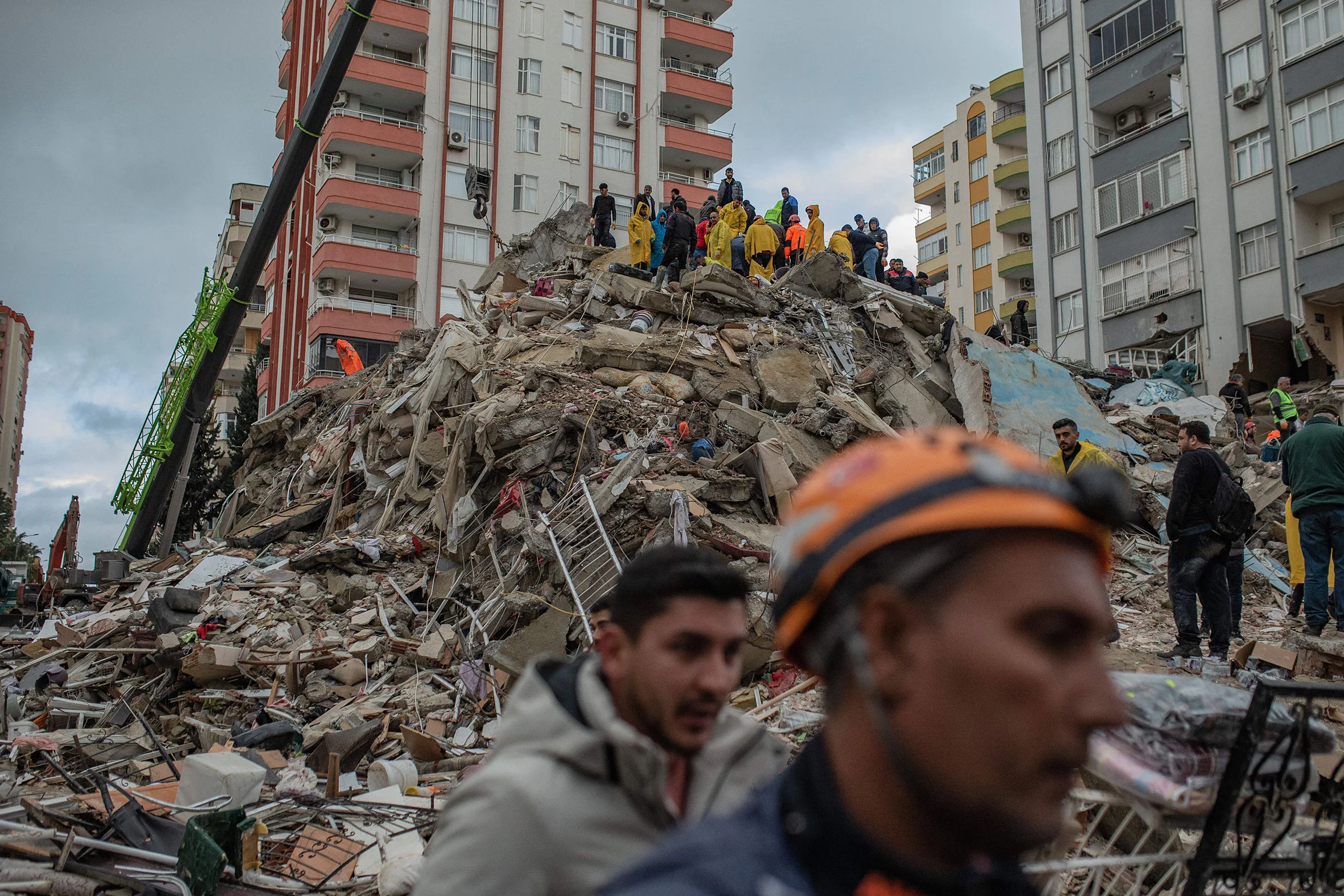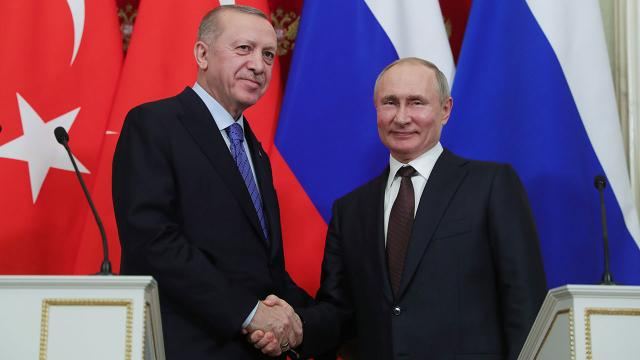Every day we read about the phenomenal human lives wasted since the massively destructive earthquake hit Turkey and Syria, a country that has recorded large-scale calamities from wars it waged on itself. The death toll was 34,000 at the beginning of this week and hopes are gradually dimming on possibilities of digging out more survivors. Destruction of lives and property was at a larger scale in Turkey than in Syria. Though the countries are still counting losses in both human lives and property, yet one important takeaway from the outcome of the 7.9 magnitude quake is Turkey’s lax policing of building codes, according to experts.
Pictures emerging from the worst-hit areas like Hatay Province show high-rise in residential buildings that are similar to what can be mapped in some of Nigeria’s urban areas, particularly in the southern part of the country. Experts say that this pattern of buildings, very close to each other was the major reason for the high number of deaths recorded. Like Turkey, Nigeria’s perennial occurrence of building collapse has been attributed to weak regulations in the compliance of standard building ethics in the quality and quantity of materials.
In addition, the world’s top insurers and reinsurers are not fretting over Turkey and Syria’s insured losses because in both countries religious beliefs inhibit insurance choices as a risk transfer mechanism. The same can also be said about Nigeria in respect of the overall weak insurance environment, poor emergency response system and absence of economic and city resilience measures.
Is an earthquake possible in Nigeria?
The answer is yes! Researchers have established that Nigeria is prone to earthquakes but claimed that it is of a low seismic proportion. This finding is contrary to the preponderance of opinions by the vast majority of uninformed Nigerians that earthquakes of the magnitude that happened in parts of Turkey and Syria cannot happen in Nigeria. Many more also hold the view that Nigeria’s geological condition cannot give rise to earthquakes, either of low or high magnitude.
In the article, Review of Earthquakes in Nigeria: An Understudied Area”, published in the International Journal of Civil Engineering and Technology, the authors posited that earthquakes of a magnitude of up to 7.1 is possible in Nigeria. There is more to this finding that should jolt the government sufficiently enough to act. It was not until the second half of 2019 that the federal government established the Center for Geodesy and Geodynamics in Bauchi State, perhaps after the tremor that shook Abuja and miles within the country.
In 2005, NASA scientists using data from the Indonesian earthquake calculated that it “affected the earth’s rotation, decreased the length of the day, slightly changed the planet’s shape and shifted the North Pole by centimetres.” These are incredible findings that humankind should follow up on closely.
The earthquake that created the huge tsunami on December 21, 2004, also “changed the Earth’s rotation” concludes Dr Richard Gross and Dr Benjamin Fong Chao of NASA’s Jet Propulsion Lab, Pasadena, California and Goddard Space Flight Center, Greenbelt, Maryland respectively. Although they imputed that the changes are barely noticeable, still such changes come with yet incalculable but certain phenomenal events in life on earth and of the Earth itself. “Any worldly event that involves the movement of mass affects the Earth’s rotation, from seasonal weather down to driving a car”, said Chao.
The NASA pronouncement put together with the 1998 8.1 magnitude earthquake in Antarctica a region previously certified with low seismicity in the world shows that Nigeria, despite being a low seismic country can experience earthquakes of higher proportions as forecasted by the researchers.
Globally, 2,206 earthquakes with a magnitude of 5.0 upwards were recorded globally in 2021. A total of 23,679 earthquakes happened across different regions of the earth from 2009 up to 2021. It would seem that the phenomenon spiked again in the past two years and with the current devastation in Turkey and Syria early in the year, it could be a warning to brace up for an uncertain year of possible aggravation of natural disasters.
In light of the vulnerabilities and increasing certainty of a massive earthquake occurring from 6% probability to over 90%, it is imperative that the CGG leadership take its task seriously so that early sensitization of the Nigerian people and awareness of the dangers can be created.
Recall that in 2001, e detonation of bombs at the Maryland Ordinance depot of the military rocked Lagos and its outskirts so massively that thousands of men and women, young and old ran to their death because there was no forewarning about the nature of that military activity. When compared to what might likely happen in the event of a serious earthquake in the country, the ‘Ikeja bomb blast’ will pale into insignificance. Though significant insured losses were recorded, the estimated thousands of Nigerians who died had no insurance coverage.
Seismic Faults in Nigeria
According to Oluwafemi, Olufuyatan, Ede, Oyebisi and Akinwunmi of Covenant University, “some geophysical studies have established that there is the existence of an active seismic fault in Nigeria. The fault was named the Ifewara-Zungeru fault due to the bearing of the line of the fault as it trends through the Ifewara zone of south-western Nigeria”. Any future earthquake in predicted to occur within the existing fault lines”, they stated in their report cited earlier.
Indeed, Federal Capital Territory residents and Abuja have experienced tremors a couple of times. The last officially reported episode was on November 1, 2018. An earlier event on September 5, 2018, which lasted three days in Mpape and some parts of the Maitama district in FCT kept the entire country in panic mode.
Records also counter the dismissive optimism that Nigeria would not witness serious earthquakes. In the past many earthquakes have been dispersedly reported across the six geopolitical zones namely the North-Central Zone (NC), North-East Zone (NE), North-West Zone (NW), South-East Zone (SE), South-South Zone (SS) and the South-West Zone (SW) as follows;
North-Central: Benue, Kogi, Kwara, Nasarawa, Niger, Plateau, Abuja
North East: Adamawa, Bauchi, Borno, Gombe, Taraba, Yobe
North West: Jigawa, Kaduna, Kano, Katsina, Kebbi, Sokoto, Zamfara
South East: Abia, Anambra, Ebonyi, Enugu, Imo
South-South: Akwa Ibom, Cross River, Bayelsa, Rivers, Delta, Edo
South West: Ekiti, Lagos, Ogun, Ondo, Osun, Oyo.
While the first quake ever in Nigeria occurred in 1939 in Ibadan, the first tremor was recorded in Warri in 1933.
Geological setting of Nigeria
Lagos and most of the southwest region are more prone to earthquakes than other regions. Interestingly, the Nigerian Association of Water-Well Drilling Rig Owners and Practitioners (AWDROP) has alerted the federal government about putting measures in place that could limit or reduce the effects of earthquake aftermath. The drilling group’s concern followed on the heels of another scholarly research led by Dr Adepelumi Adekunle Abraham, of the Department of Geology, Obafemi Awolowo University, Ile Ife which pinpointed Shaki in Oyo State as being in danger of earthquake. Their report titled “Preliminary Assessment of Earth Tremor Occurrence in Shaki Area, Shaki West Local Government, Oyo State” triggered a call by AWDROP for regulation for underground water extraction. There is none as yet in this regard.
Instruments to detect seismic activity
Nigeria is gradually equipping itself to improve its seismic records and that effort has currently raised the country to a status of possessing five active seismic stations in Nigeria. The plan is to increase the number of seismic stations across the country. The Centre for Geodesy and Geodynamics (CGG) Toro is saddled with the task of monitoring and studying seismic events of the country. The active seismic stations run on a 24-bit 4- channel data acquisition system with seismometers broadband. It is not certain if the planned acquisition of telemetry equipment has been affected. Greater emphasis should be on the education of the population.
Forecast
Nigeria is only five years away from the terminal forecast period of 2010 to 2028 when it was predicted that an earthquake of magnitude greater than 5.0 would occur in the country along its seismic fault line with the South-West most susceptible. Increasingly several seismic alerts and warnings from agencies and researchers point to a possibility that must be taken seriously. The forecast had a probability that increased from 6% to 91.1% between 2010 and 2028.
Future research led by the CGG should endeavour to bridge the knowledge gap as regards the extent of the probable future earthquakes in Nigeria. This will enable an orientation process to get Nigerians and businesses prepared for any such occurrence. It is unhelpful to hold on to the arguments that large earthquakes may not occur in the country. A shift in the North Pole after the Indian Ocean tsunami has altered many an existing geophysical balance.







